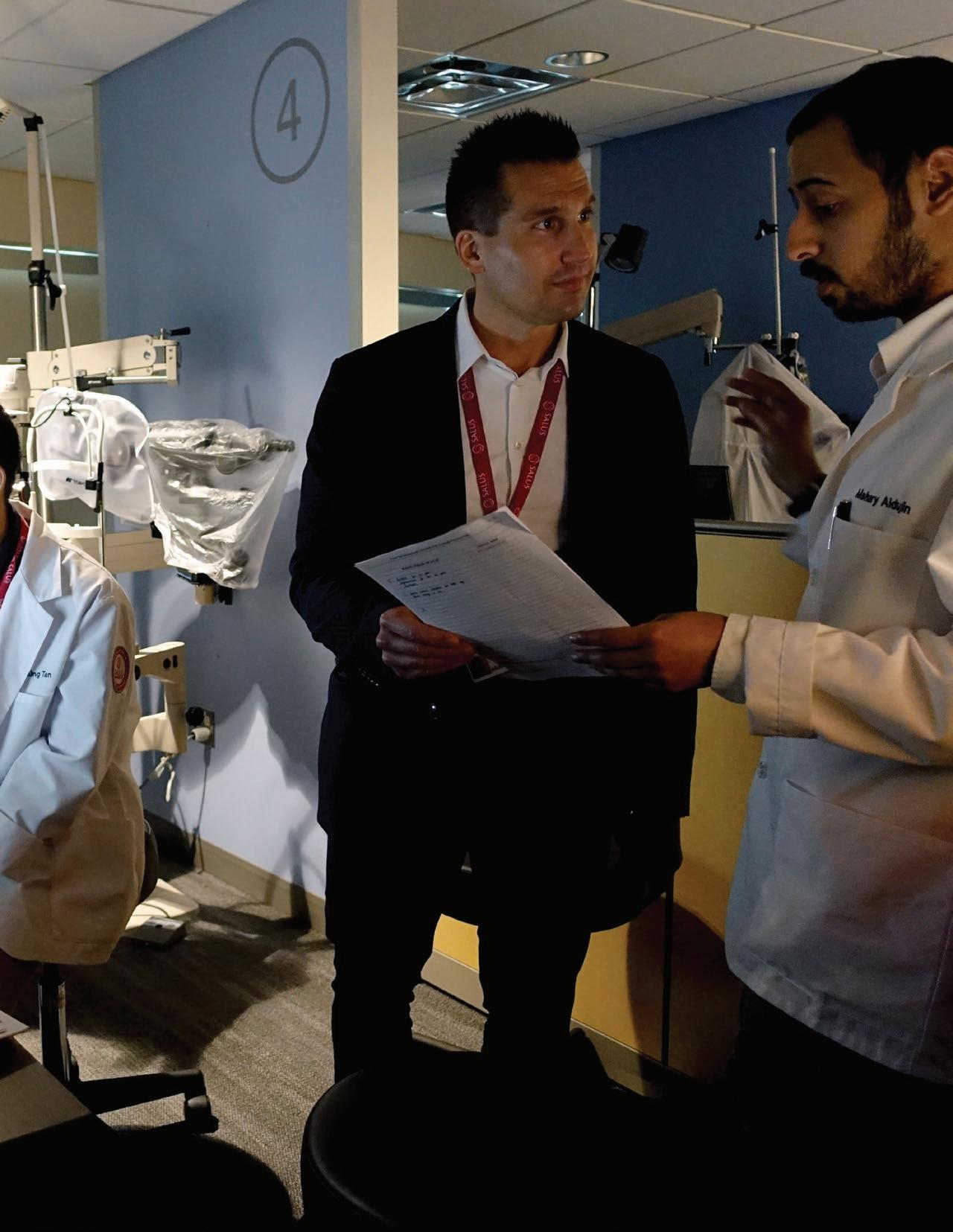
1 minute read
Role of the DICE, Part II: Innovation on a Global Scale
DICE has also proven to be flexible and creative as evidenced by the way it responded to the COVID-related shutdown. For example, the department developed a hybrid delivery track, in addition to its face-to-face track, for the MSCO degree program. Lectures and exams are now virtual; students come to campus only for hands-on clinical training. This helped make the program more accessible for students around the world, and helped the program continue to expand.
“Similarly, DICE also reinvented how we offered our Continuing Education (CE) programs,” said Dr. Vitek. “Before COVID, the CE programs were largely in person but now many are delivered virtually. We also created a library of asynchronous lectures, some of which are offered free to Salus alums, and are accessible on the Salus University website.”
Their expanded efforts have proven successful, as the department hosted a virtual interprofessional CE in February, which drew quadruple the number of participants from a similar session in 2019. The program represented eight professions taught at Salus and provided DICE with positive reinforcement of their innovation efforts.

DICE, in collaboration with Salus’ Office of Institutional Advancement, also hosted a CE by the Sea in 2020 where a group of PCO faculty provided a world-class program in Aruba. After a pandemic-induced hiatus, the two departments partnered to bring CE by the Sea back this year in Turks and Caicos. Building on the successes of both destination CE events, there are plans for an interprofessional CE by the Sea in 2024 along with an optometry-specific CE in the South.
Currently, DICE offers profession-specific, interprofessional, international and continuing education programs that include Audiology, Blindness and Low Vision Studies (BLVS), Occupational Therapy, Orthotics and Prosthetics, Optometry, Speech-Language Pathology, and Biomedicine.
More recently, DICE assists in the design and provides administrative support for the University’s micro-credential offerings, which include BLVS, Optometry and interprofessional education collaborative (IPEC) content areas with a new Orthotics and Prosthetics offering on the horizon.










